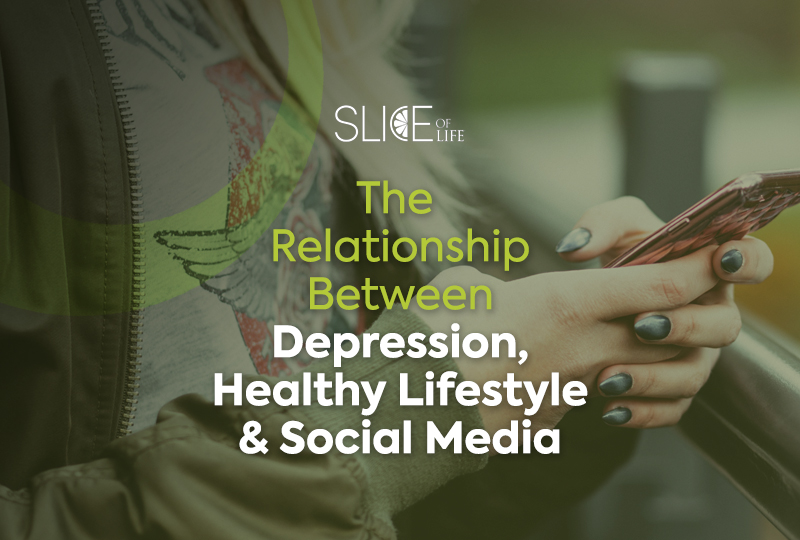A study was recently published surrounding the relationship between depression, healthy lifestyle behaviors and internet addiction in a university-aged student population. Titled “The relationship between depression, healthy lifestyle behaviors and internet addiction: a cross-sectional study of the athlete university students in Turkey”, this compelling study conducted by Frontiers in Psychology demonstrates interesting parallels related to athletic participation, depression and internet overuse. The study was conducted across the physical education and sports departments of three different state universities in Turkey. Participants consented to being a part of the study through online surveys that were distributed. In total, 501 undergraduate students comprised the sample population that the study would ultimately be based upon.
Previous findings in similar studies have indicated that participation in sports (health-oriented lifestyle) while obtaining a university education facilitates positive mental health characteristics, such as self-confidence, commitment, social support and positive self-esteem. This has generally been associated with student-athletes being inclined to utilize a social support system to combat depression and anxiety to cope with stress more effectively.
The study would aim to understand the positive and negative correlations between quantifiable data surrounding whether a student was or was not depressed, the amount of health-promoting behaviors the displayed, and whether or not they possessed an internet addiction.
The instruments that were used to quantify the depression, health-promoting behaviors and internet addiction data were as follows:
- Center for Epidemiologic Studies Depression Scale (CES-D): A self-report scale commonly used to monitor depressive symptoms in the general population.
- Health Promoting Lifestyle Profile II (HPLP-II): A profile used to measure the health-related behaviors of students, with a higher score indicating positive health promoting behaviors.
- Young’s Internet Addiction Test-Short Form (YIAT-SF): Minimum and maximum scores attainable are 12 and 60, respectively, with a score under 30 indicating “normal” internet usage and above 37 indicating “pathological” internet usage.
With the mean age of the student sample population being 21.47 years of age, the results of the study showed that of the 501 students, 49.7% used social media 2-4 hours a day, 39.9% did sports 3-4 times a week and 49.5% used 3 or more social media networks. Of the 501 students, 76.4% had depressive symptoms (14.4% mild, 32.5% moderate, 29.5% severe).
The results of the internet addiction test yielded a 34.4% portion of the sample possessing symptoms of internet addiction, with 19.2% being addicted at a problematic level and 15.2% being addicted to the internet at a pathological level.
The relationships between the demographic populations of the study were also analyzed, showing that the depression rate of women (82%) was significantly higher than that of their male counterparts (73%).
Additionally, it was also made clear that the depression rate of students that still lived with their families (72.5%) was significantly lower than that of students who did not still live with their families (81.3%).
As previously mentioned, the CES-D, HPLP-II and YIAT-SF were used to analyze the relationship between depression, healthy lifestyle behaviors and internet addiction. Those participants with depression had significantly lower scores on the Health Promoting Lifestyle Profile than those participants without depression. The mean score of participants with depression on the Internet Addiction Test were significantly higher than those of the participants without depression.
A positive correlation was found to exist between the self-reported depression scale and the internet addiction test. Conversely, it was found that there was a negative relationship between the self-reported depression scale and the health-related behaviors profile.
In conclusion, this study provided legitimate insight into the overall relationship that exists between the health-promoting behaviors of students, depression rates and internet addiction. The study itself was confirmation of the prevalence of [growing] depression amongst university-aged students, including those who are athletically involved in the physical education and sports departments of their universities.
Nonetheless, the results of the study suggested that there was a positive relationship between the improvement of healthy lifestyle behaviors and the diminishing of depressive symptoms. Simultaneously, the study draws attention to the internet addiction that can arise from depressive symptoms and vice-versa.
Across the board, there are practical steps and recommendations that universities can take to implement programs and counseling services that benefit and inform the mental health and psychological well-being of their student populations.
Life University (Life U) offers a variety of resources and services for any students who are interested in learning more about safeguarding their mental health. For more information, please visit life.edu/campus-life-pages/counseling/.
Slice of LIFE is an invitation to and extension of everything happening at Life University. Whether you are a current student, a potential freshman or a proud alum, Slice of LIFE can help keep you connected to your academic community. Know of a compelling Life U story to be shared, such as a riveting project, innovative group or something similar? Let us know by emailing Marketing@life.edu.


Social Media